What is an Ingrown Toenail?
An ingrown toenail is where the edge or a piece of the nail grows or pierces into the surrounding skin of the toe. This condition can be extremely painful and can sometimes lead to the affected area being irritated, swollen or infected.
Symptoms
Pain
Redness
Inflamed/Swelling
Infection
This is one of the main symptoms of an ingrown toenail. Initially, there may be mild discomfort along the side of the affected toenail. However, as the condition progresses, the pain can go from mild to more intense, especially when pressure is applied to the toe, such as when walking or when wearing shoes. The pain can also worsen if the toenail becomes infected.
This leads to the affected area of the toenail to become red, irritated and inflamed. The skin adjacent to the ingrown toenail can become warm and tender too.
This leads to the affected area becoming swollen and inflamed. This occurs due to the pressure of the ingrown toenail and can cause more discomfort and pain.
If an ingrown toenail is left untreated, it can become infected, leading to further symptoms. Signs of infection include increased pain, malodour, heat, redness, inflammation and pus or drainage around the affected area.
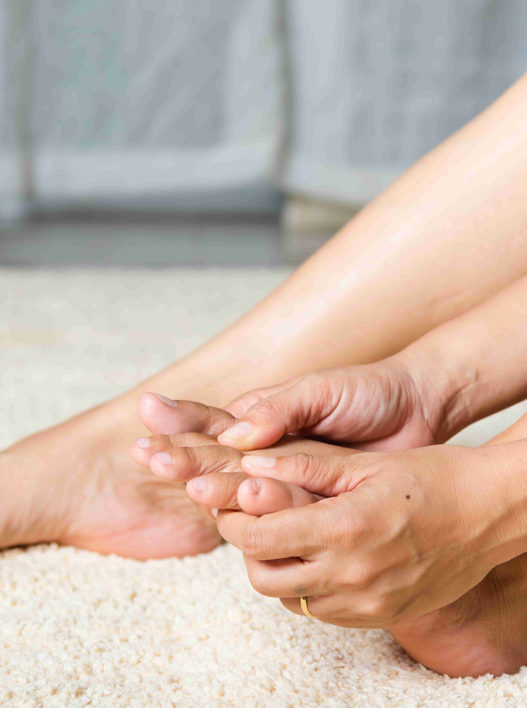
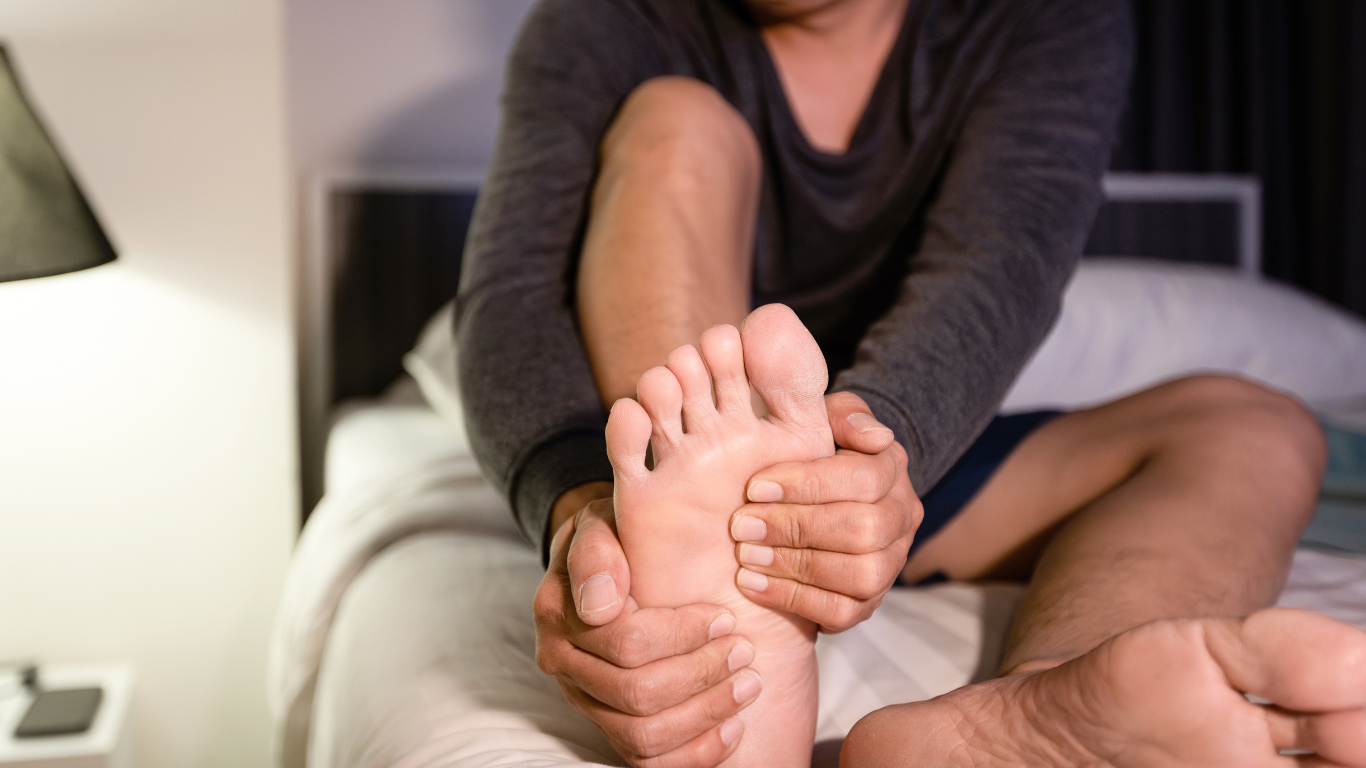
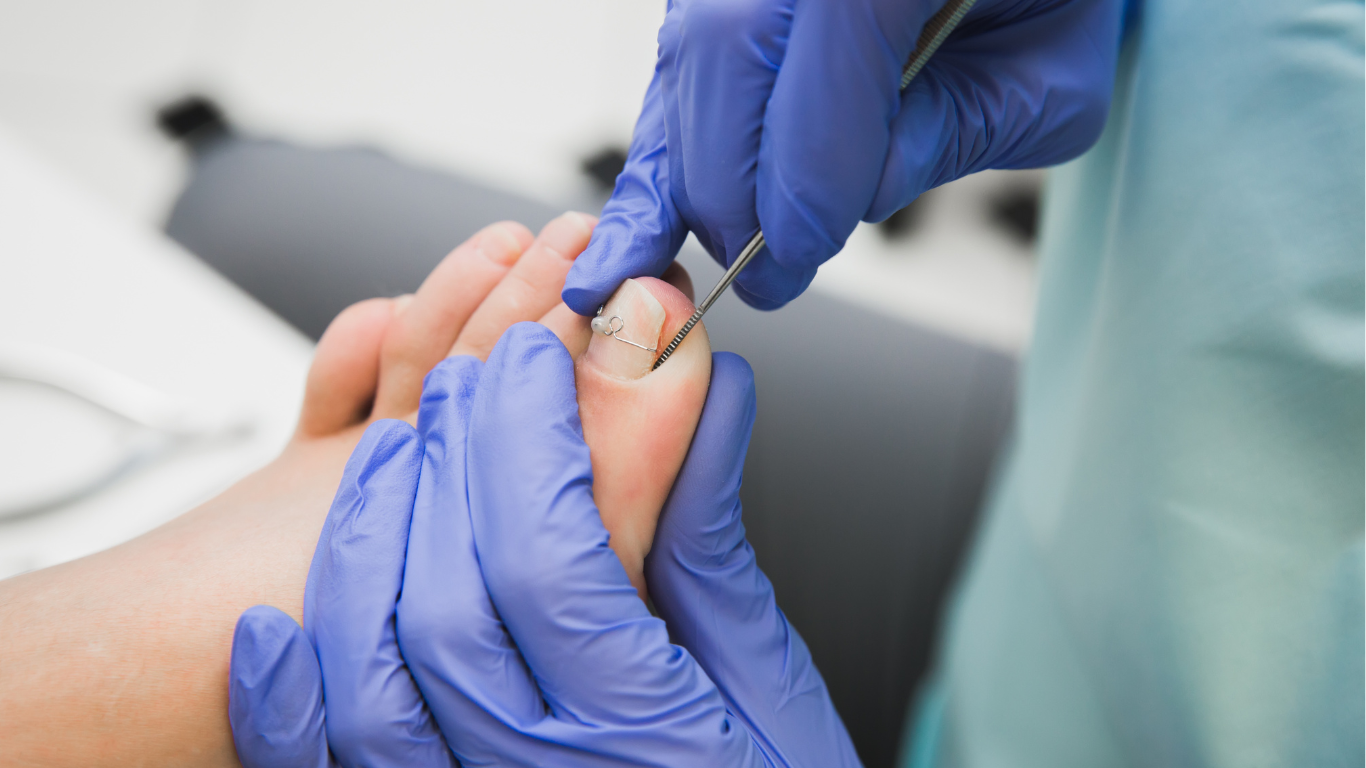
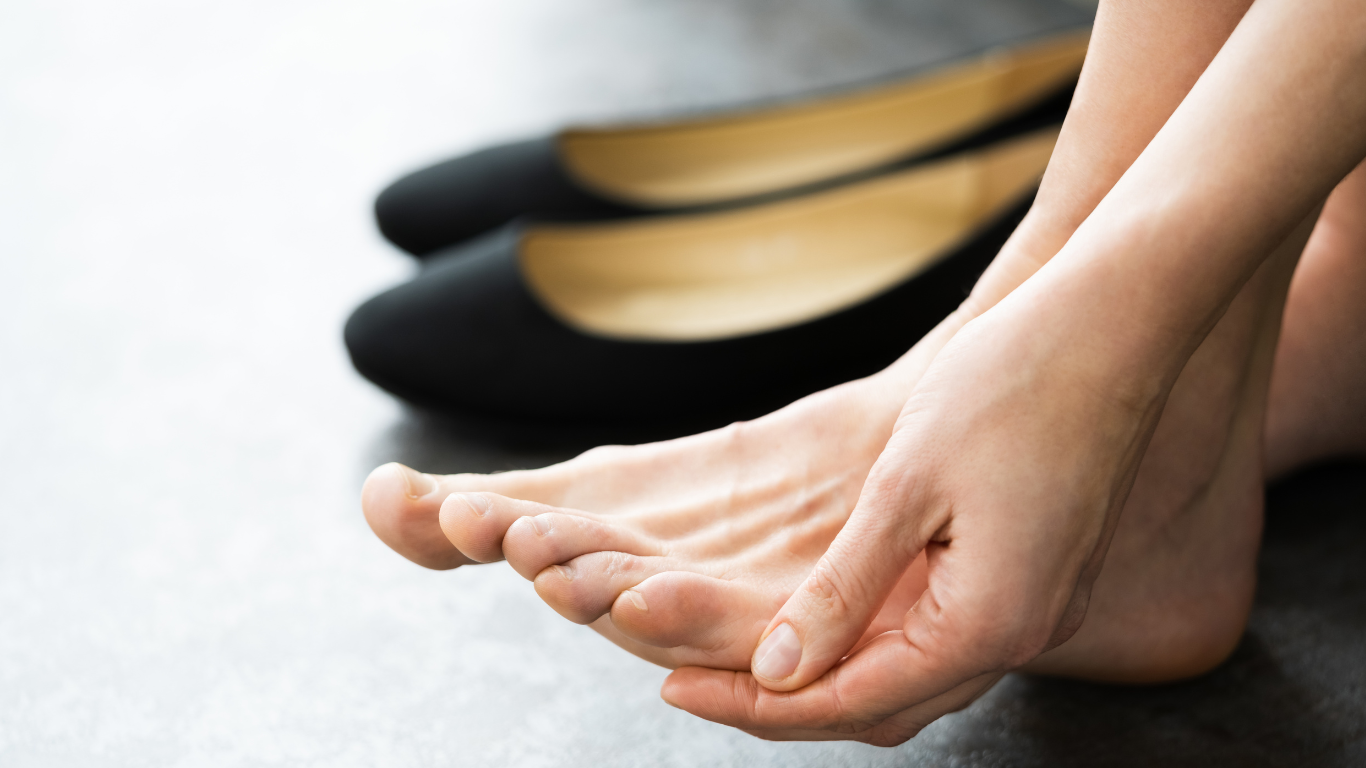
get to know
The Causes
Understanding the causes of ingrown toenails is crucial for prevention and effective treatment, ensuring long-term foot health and comfort.
Improper Nail Trimming
Trimming and cutting the toenails too short or rounding the edges and cutting the ends of the shoulders.
Tight-Fitting Shoes
Poor and tight-fitted footwear crowds the toes and increases the pressure on the toes, increasing the risk of ingrown toenails.
Trauma/Injury
This can lead to ingrown toenails as sustaining an injury or trauma such as stubbing of the toe can cause the toenail to grow abnormally as the nail matrix (the area where the nail grows) can get damaged.
Fungal Nails
This can cause thickened nails and nail deformity, increasing the risk of ingrown toenails.
Certain Medications
Some medications such as chemotherapy agents, can cause changes in the texture of the nail and affect nail growth, increasing the risk of ingrown toenails.
Genetics
Inherited nail shapes such as involuted or inherited foot structures have a tendency and increase the risk of developing ingrown toenails.
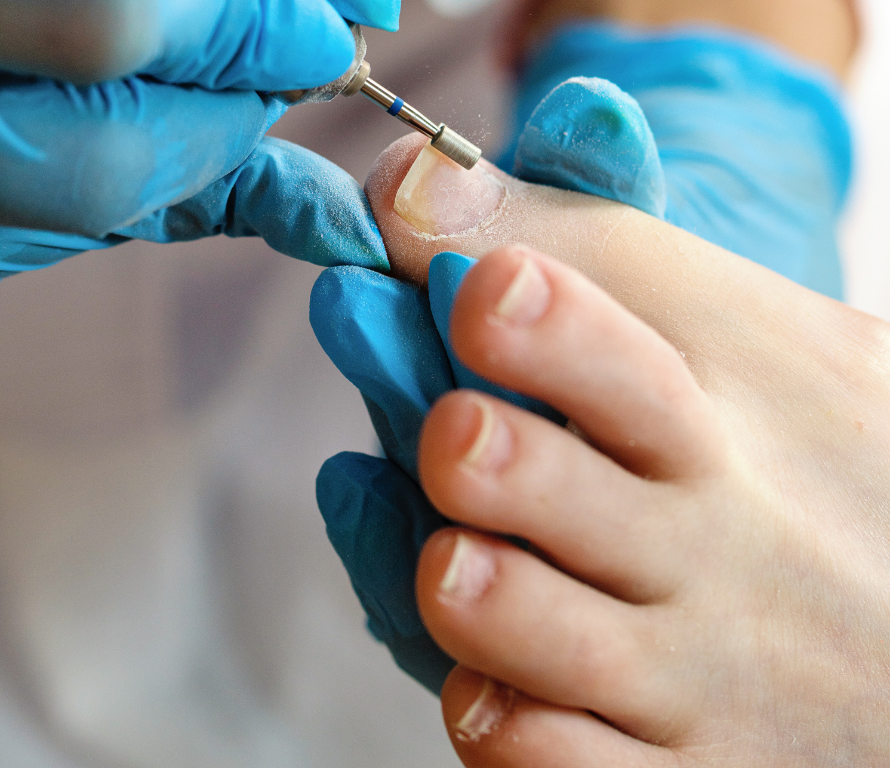
Early Intervention
Is key in helping to alleviate pain, reduce the risk of complications, and promote healing of the affected toe.

Treatment Options
Our experienced podiatrist is equipped with the knowledge and tools required to effectively address this issue.
Upon consultation, the severity of your ingrown toenail will be assessed and dependent on this, the most suitable treatment option will be discussed.
we offer
Conservative Treatment Methods
These treatment options aim to provide immediate relief, alleviate any pain, or discomfort and encourage correct nail growth.

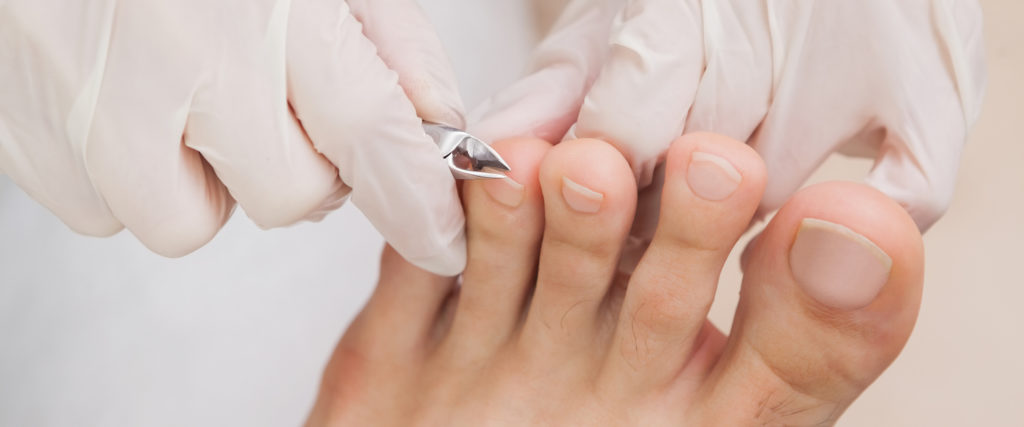
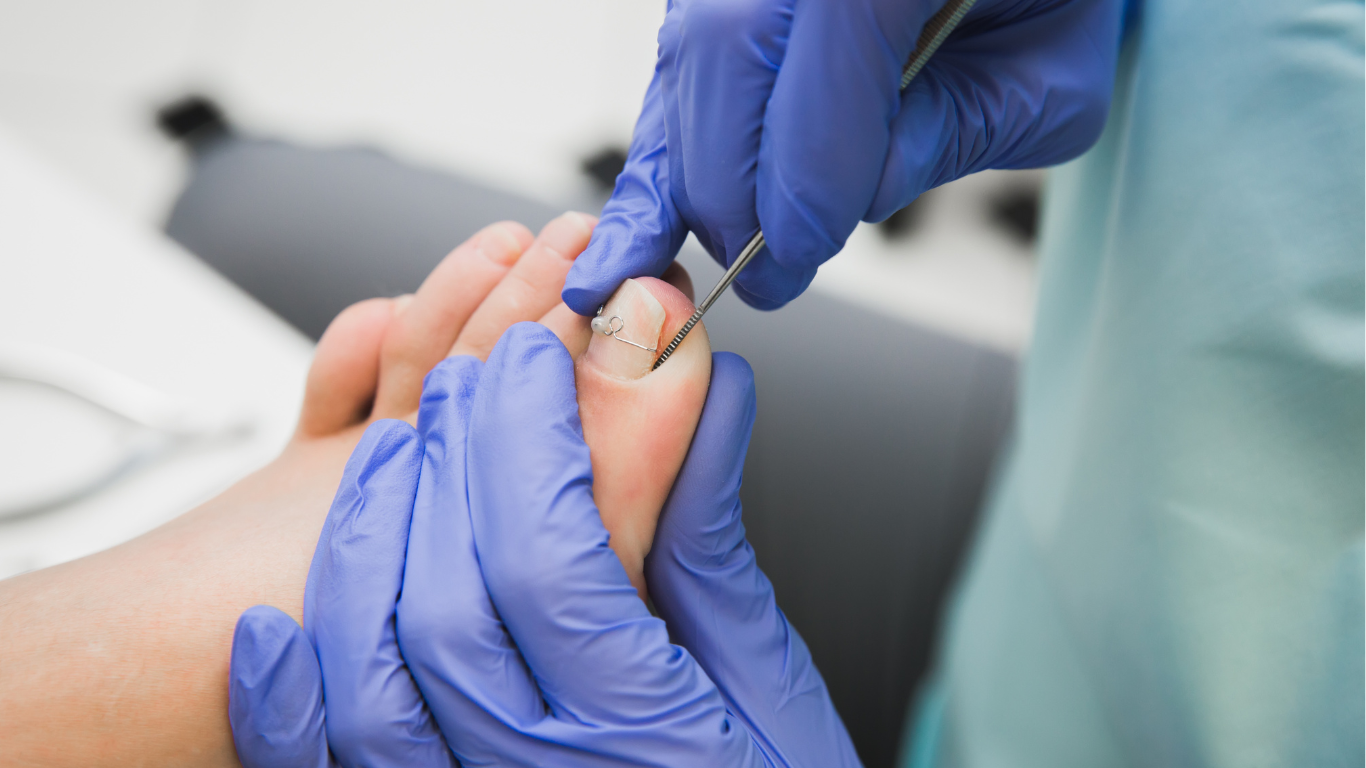

we'll get you
Back on Your Feet
We offer Quality Care & Convenient Hours for All Your Podiatry Needs and Treatments.
Arrange an Appointment Today
We're passionate about our services and we believe this one is just right for you. So get in touch and we'll arrange an appointment at your earliest convenience.
